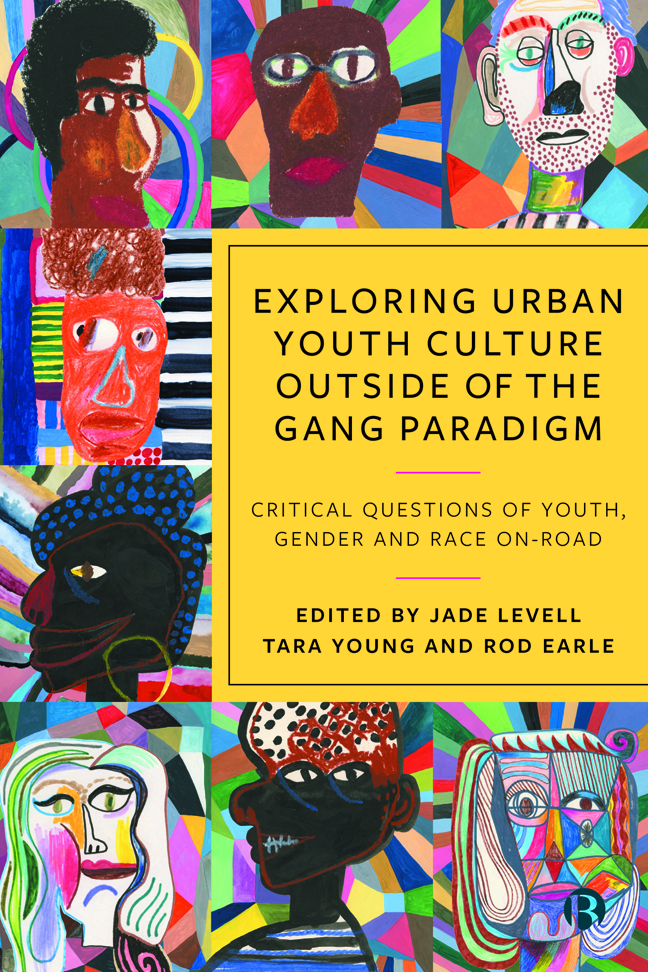 Exploring Urban Youth Culture Outside of the Gang Paradigm
Exploring Urban Youth Culture Outside of the Gang Paradigm Book contents
- Frontmatter
- Contents
- Notes on Contributors
- Foreword
- Preface
- 1 Introduction: Youth and On-Road – Making Gender and Race Matter
- 2 Black, British Young Women On-Road: Intersections of Gender, Race and Youth in British Interwar Youth Penal Reform
- 3 Tainted Love: Intimate Relationships and Gendered Violence On-Road
- 4 (The) Trouble with Friends: Narrative Stories of Friendship and Violence On-Road
- 5 The Sexual Politics of Masculinity and Vulnerability On-Road: Gender, Race and Male Victimisation
- 6 The Road, in Court: How UK Drill Music Became a Criminal Offence
- 7 On-Road Inside: Music as a Site of Carceral Convergence
- 8 Jeta e Rrugës: Translocal On-Road Hustle, Within and from Albania
- 9 ‘He's shown me the road’: Role Model and Roadman
- 10 Diary of an On-Road Criminologist: An Auto-Ethnographic Reflection
- 11 Conclusions, Compromises and Continuing Conversations
- Index
5 - The Sexual Politics of Masculinity and Vulnerability On-Road: Gender, Race and Male Victimisation
Published online by Cambridge University Press: 24 January 2024
- Frontmatter
- Contents
- Notes on Contributors
- Foreword
- Preface
- 1 Introduction: Youth and On-Road – Making Gender and Race Matter
- 2 Black, British Young Women On-Road: Intersections of Gender, Race and Youth in British Interwar Youth Penal Reform
- 3 Tainted Love: Intimate Relationships and Gendered Violence On-Road
- 4 (The) Trouble with Friends: Narrative Stories of Friendship and Violence On-Road
- 5 The Sexual Politics of Masculinity and Vulnerability On-Road: Gender, Race and Male Victimisation
- 6 The Road, in Court: How UK Drill Music Became a Criminal Offence
- 7 On-Road Inside: Music as a Site of Carceral Convergence
- 8 Jeta e Rrugës: Translocal On-Road Hustle, Within and from Albania
- 9 ‘He's shown me the road’: Role Model and Roadman
- 10 Diary of an On-Road Criminologist: An Auto-Ethnographic Reflection
- 11 Conclusions, Compromises and Continuing Conversations
- Index
Summary
Introduction
This chapter explores the lesser told stories of sexual relations on-road. Feminist and gender theorists have long since argued that sex is inherently political; summed up in the second-wave feminist slogan the personal is political (Millett, 1970). The premise was that how individuals and couples related in their intimate relationships was as important as the broader societal picture, connecting the micro and macro levels. Personal issues became public matters (Holmes, 2007). Feminist theorising about experiences of sex, framed as within the constraints and context of patriarchal society, have largely focused on women's experiences, however in recent years this has been changing. Aiding this change has been the critique and deconstruction of the idea of what it means to be a woman in itself. Black feminists such as Crenshaw (1991) conceptualised intersectionality to respond to the relative invisibility and lack of consideration around Black female victims of domestic abuse within refuges run by the feminist mainstream. Crenshaw urged feminists to look beyond gender solidarity and instead explicitly focus on the myriad of ways in which gender intersects with other aspects of identity, including race and class. As this has gained traction it has also brought critiques of masculinity(ies) and an understanding of the ways in which gender, race and class intersect and fundamentally change the discursive negotiations of the victim or perpetrator labels in men's lives. This is pertinent for young men on-road, who are often living at critical junctures of exclusion. Their image is constructed (both by themselves and others) in ways which resonate with protest masculinity (Connell, 2005; Levell, 2020). Toughness, invulnerability, sexual prowess and the street hustle are foregrounded in a way which leaves their experiences of vulnerability or victimisation invisible. This chapter uses an intersectional lens to examine diverse ways that men on-road discussed their consensual, exploitative, abusive or transactional sexual experiences.
Sexual prowess and gang stereotypes
Connell (2005) has argued that masculinities are defined in relation to each other as well as in relation to femininities. If this is the case, then how men view women will form a key aspect of their personal gender construction efforts (Mullins, 2006). All forms of masculinities have been constructed in contrast to a feminine other, with those that are positioned at the bottom of the masculine hierarchy somehow symbolically assimilated to femininity (Swain, 2005).
- Type
- Chapter
- Information
- Exploring Urban Youth Culture Outside of the Gang ParadigmCritical Questions of Youth, Gender and Race On-Road, pp. 81 - 99Publisher: Bristol University PressPrint publication year: 2023
